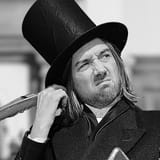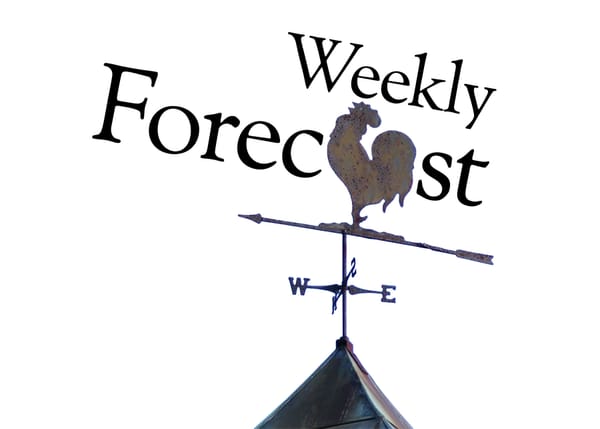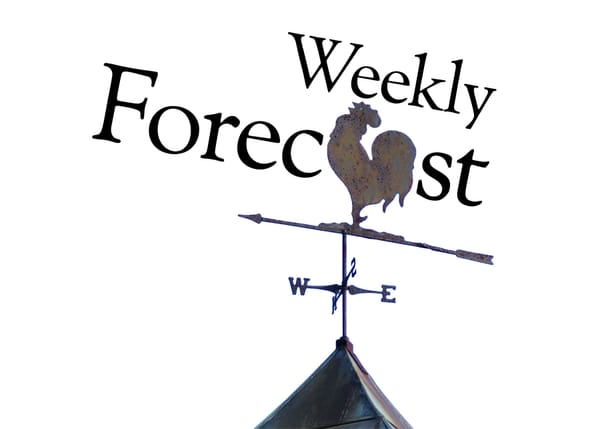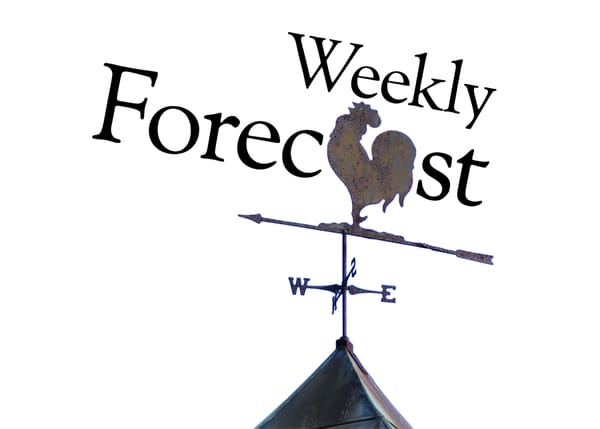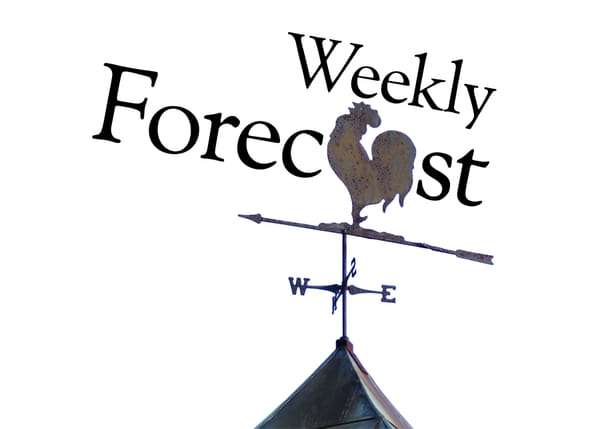Good Help and Good Oxen
My solution to an attempted fleecing, and the worrisome lyrics of a Christmas song from 1701.

It's nothing but headaches, owning a newspaper.
Take this, for example. I noticed the C-O's website was down, and I sent a message to the web guy to find out why. He told me, in a stridently aggressive email, that (a) he was still upset about getting fired, and (b) if I checked my contract, I'd find out I didn't actually buy the website.
My attorney keeps telling me I should read my contracts before I sign them. I might have to admit he has a point.
So I thought, OK, well played, Gertie Bird. I called her up, to make an offer for the website, but she'd already sold the domain to a "nice man in Bulgaria." So I called him, and, indeed, he was weirdly nice, like, "I just made a tasty pot of chorba; can I mail you some?" nice. But he wanted a hundred dollars for the domain name. A hundred dollars! An avocado toast for every letter! Nobody's got Benjamins to burn like that.
Well, you can't be a tycoon if you're a quitter. I don't need their dumb dot com; I went out and got a new website that's even better than the old one: casualobserver.co. That's "co" as in Casual-Observer. I know—clever, and it saved me ninety bucks. Boom! Who needs an m?
Seeing as this is my first issue, I wanted a good, hard-hitting front-pager, and I was worried I didn't have anything punchy enough, until I found out there are urinals that let you play music by aiming your stream, just like Guitar Hero, and I thought, yes! Perfect exposé. You know it gives women an unfair advantage, since they're closer to the porcelain.
I had that story all written up, but then something even better came across my desk. I got to run into the press room and yell, "Stop the presses!" So much fun! I hope the pressmen don't mind if I make that my "thing." Maybe you wouldn't think a Christmas song would be a "stop the presses" kind of story, but that's because you haven't heard the Burgundian Carol, aka the Carol of the Beasts.
Now, we all know Christmas songs aren't required to make sense. Christmas composers are keen to understand their audience, so they cultivate the state of rosy intoxication in which their songs will be performed. Johnny Marks when he wrote Rudolph the Red-Nosed Reindeer: blotto. Isaac Watts when he was penning Joy to the World: delirious. But none of them were, ever in their lives, as drunk as Bernard de La Monnoye was in 1701, when he wrote the Burgundian Carol.
The song starts off without too much controversy. "The winter season of the year, when to this world our Lord was born, the ox and donkey, so they say, did keep His Holy Presence warm." Which I can credit. Oxen generate mad body heat, so an ox could be off in the corner, and still raise the thermostat. But that's not what happened, apparently. "As soon as to those humble beasts appeared our Lord, so mild and sweet, with joy they knelt before His Grace and gently kissed his tiny feet."
So there you have it. The mother of our Lord, who had some interest in the safety of her brand-new godbaby, given that she'd just finished the work of dislodging Him from herself, gazed on lovingly, while a fifteen-hundred-pound ruminant barged out of its stall, knelt (a big ask for a bovine), and licked the amniotic fluid from His wrinkly, purple, just-born feet. And THEN the ox moved out of the way so an actual ass, with its infamous TWO-INCH INCISORS, could have room to baste those seed-sized toes with its ridiculous donkey tongue.
Perhaps my reader is a city child, and hasn't met too many donkeys. If, so, I may have the advantage. I know a donkey. In fact, I've slept with a donkey, more than once. [Copyeditor: Suggest you substitute, "stayed the night in an occupied barn." Is misleading as written, I hope.] Mrs. Tycoon was there, and can confirm. Despite what you've been told about the "gentle lowing of the beasts," the sounds you can expect to hear, should you find yourself sleeping near a donkey's stall, are these: an evocative bray, more suggestive of a brontosaur than a smallish almost-horse, and a frequent uproar of long, loud urination.
Donkeys are not nice. They're famous biters and kickers. They've earned their reputation as stubborn jerks. As to why that might be, De La Monnoye's chorus offers a theory I hadn't considered, and could explain how the parents of a sacred young newborn might sanely allow such beasts to approach their tender bundle. His proposition, which we'll call the De La Monnoye Hypothesis, is that oxen and donkeys have devolved over time. They weren't always such animals.
"How many oxen and donkeys now, if they were there when first He came—how many oxen and donkeys you know, at such a time, would do the same?"
Clearly implying that the burden-beasts of his day were less pious than those in the Bethlehem stable. If this is true, and the trend line has continued downward since he wrote those words, then it stands to reason that our donkeys and oxen are the worst ones ever. Which conforms with my belief that today's donkey would sooner chomp his Savior's little ankles than kiss them gently.
How to prove the De La Monnoye Hypothesis, I can't say. With any luck, there's a monastery somewhere, who've been measuring the barnyard behavior matrix over time. I'll research this doggedly, I assure you, once I've finished eating the excellent soup that just came in the mail.

